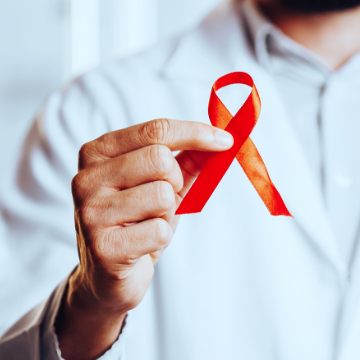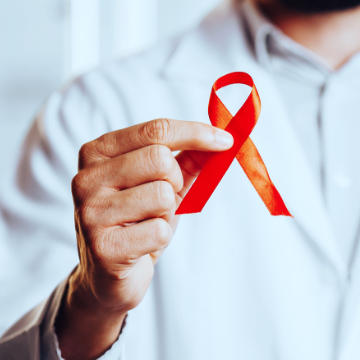





When living with HIV, details matter.
But when was the last time you stopped and asked yourself:
“Am I living as well as I could be?”






There are so many other things that you might have on your mind or be dealing with day to day that can impact your life and wellbeing.1–4
But when we get busy it can be easy to miss the small things.


What does living well with HIV mean?
UK guidelines recommend that as a person living with HIV, you should be supported to effectively self-manage your care.
That means understanding how HIV affects your life; how to cope with clinical, physical, psychological and social challenges it presents, and feeling in control of the many daily decisions that could improve your overall health and wellbeing.3
Are you having the right kind of conversations with your healthcare professional?
A big part of this is making sure you are well informed and feel equipped to discuss these aspects of your life with your healthcare professional.
But when they ask you how you are…do you just say “I’m fine”?
Having the right kind of conversation is vital to help understand your individual needs to provide you with the right access resources, support and, if needed, onward referral.3
So, it’s down to you to build a picture of what’s really going on.


Get the most out of your clinic visit
Before your next routine appointment build in some time to ask yourself:
“Has anything changed?”
“Are there any niggles or concerns at the back of my mind?”
“Is there something I want to discuss but I’m not sure because I haven’t raised it before?”
It’s OK to ask questions.
Only you know how you’re feeling… and what’s going on in your life.3
So don’t keep it bottled up inside.
Talk to a friend, a family member or your healthcare professional.

When it comes to living well, details matter.
Useful resources

The Terrence Higgins Trust
The UK’s leading HIV and sexual health charity. Supporting people living with HIV and helping people to achieve good sexual health.
tht.org.uk

Nam aidsmap
Sharing information about HIV & AIDS. They believe independent, clear and accurate information is vital in the fight against HIV & AIDS.
aidsmap.com
1. Lazarus, J.V., Safreed-Harmon, K., Barton, S.E. et al. Beyond viral suppression of HIV – the new quality of life frontier. BMC Med 14, 94 (2016). https://doi.org/10.1186/s12916-016-0640-4
2. Erdbeer G, Sabranski M, Sonntag I, Stoehr A, Horst HA, Plettenberg A, et al. Everything fine so far? Physical and mental health in HIV-infected patients with virological success and long-term exposure to antiretroviral therapy. J Int AIDS Soc. 2014;17(4 Suppl 3):19673.
3. BHIVA Standards of Care for People Living With HIV. 2018. Available at: https://www.bhiva.org/file/KrfaFqLZRlBhg/BHIVA-Standards-of-Care-2018.pdf. [Accessed online 02.02.22]
4. Positive Voices: The National Survey of People Living with HIV. Findings from the 2017 survey. Available at: https://assets.publishing.service.gov.uk/government/uploads/system/uploads/attachment_data/file/857922/PHE_positive_voices_report_2019.pdf. [Accessed online 02.02.22]
Images on this site are for illustrative purposes only and are not real patients.
The disease awareness campaign Take a Closer Look and this website have been developed, fully funded, and are maintained by the pharmaceutical company MSD. The information included on this site is for general educational purposes only. It is not intended nor implied to be a substitute for professional medical advice. You should always consult your healthcare professional to determine the appropriateness of the information for your own situation, or if you have any questions/concerns regarding your health or treatment.
Contact us: Email | 0208 154 8000
GB-NON-09136 | Date of Preparation: June 2024



